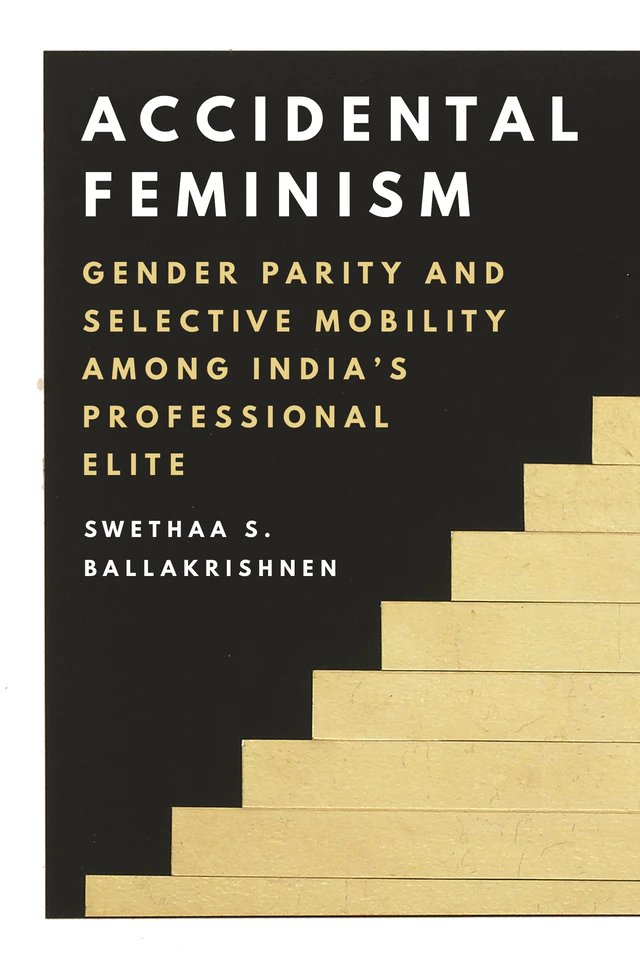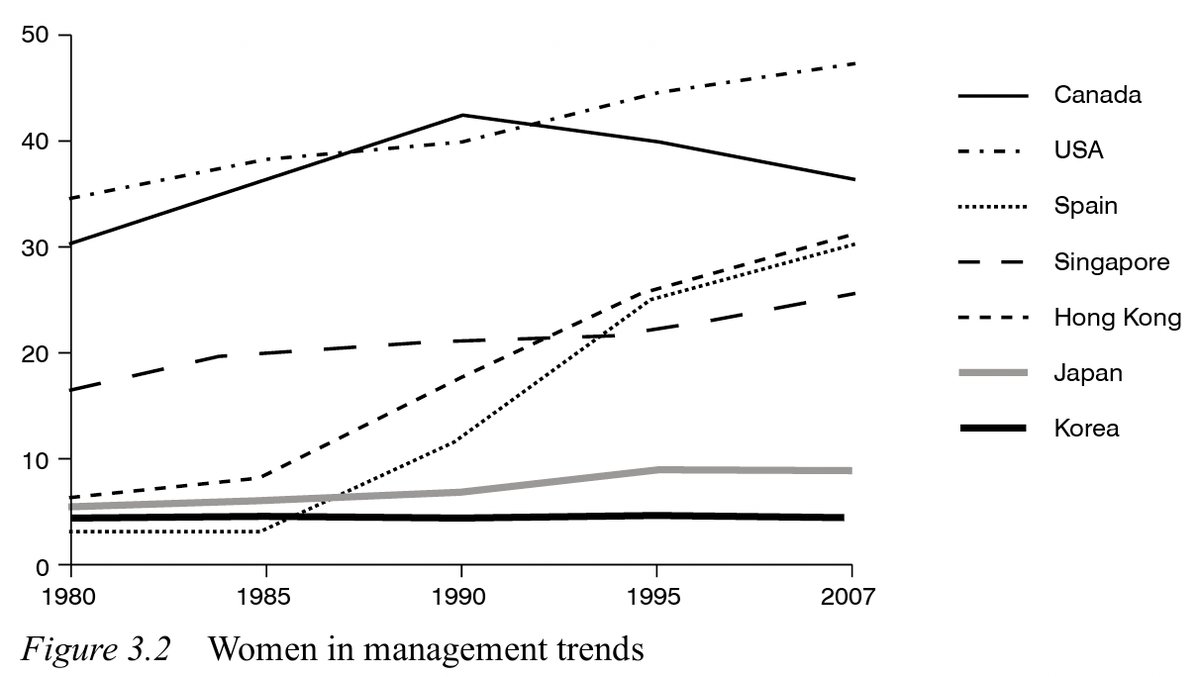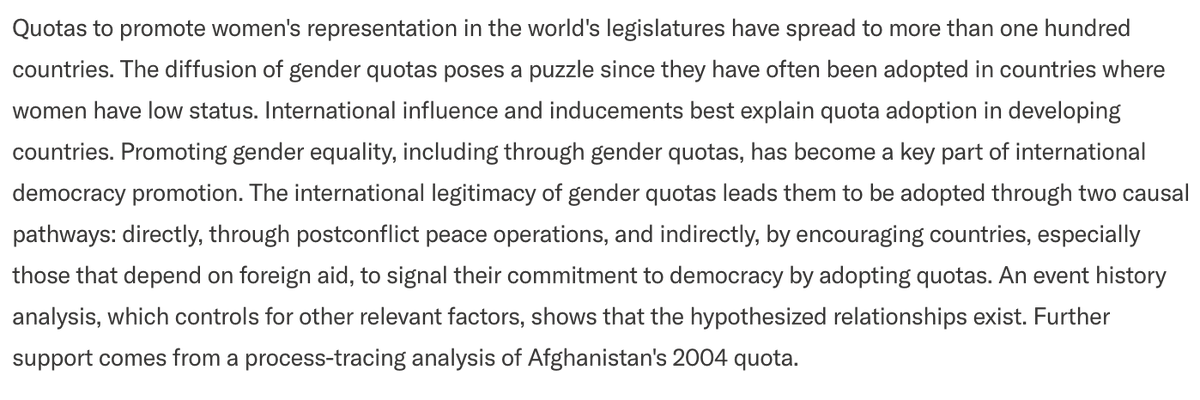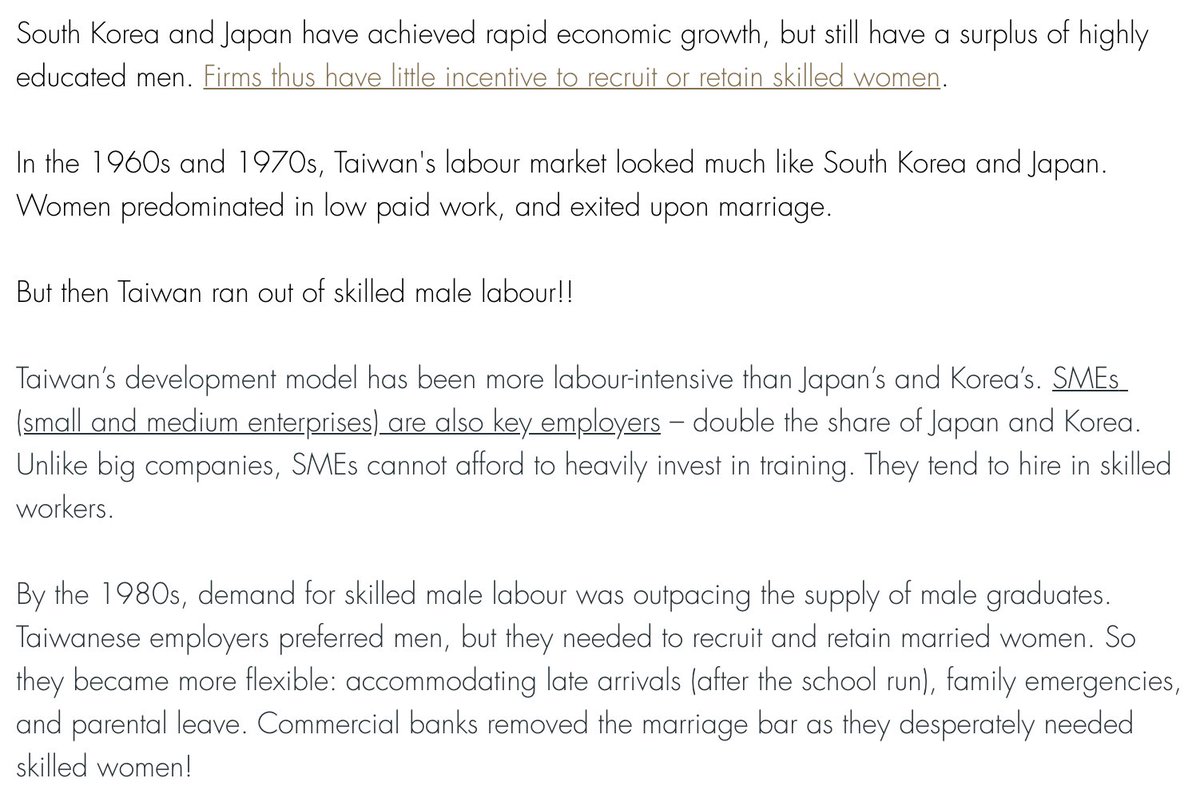Elite Indian law firms are #AccidentalFeminists
They create gender equal workspaces to appear progressive & gain global legitimacy.
A fascinating book about globalisation, employment, & women renegotiating social norms.
by @ssballakrishnen
The best book I've read in 2020.
They create gender equal workspaces to appear progressive & gain global legitimacy.
A fascinating book about globalisation, employment, & women renegotiating social norms.
by @ssballakrishnen
The best book I've read in 2020.
To steal a line from @tylercowen, this is a love letter to big business and globalisation!
But the uniquely impressive thing about @ssballakrishnen is her phenomenally wide-ranging knowledge of research on gender.
This enables superb comparative analysis.
Strongly recommend!
But the uniquely impressive thing about @ssballakrishnen is her phenomenally wide-ranging knowledge of research on gender.
This enables superb comparative analysis.
Strongly recommend!
If you read one book on gender (not just in India but for the whole world), it should be #AccidentalFeminists.
@ssballakrishnen takes everything we know about gender then asks "so why are these interactions and organisations different? what's happening here?"
It is sublime!
@ssballakrishnen takes everything we know about gender then asks "so why are these interactions and organisations different? what's happening here?"
It is sublime!
Relatedly, look at this comparative data on women in management.
Check out Hong Kong versus Japan & Korea. I suspect this stems from demand from foreign firms
Globalisation!
Check out Hong Kong versus Japan & Korea. I suspect this stems from demand from foreign firms
Globalisation!
Indian law firms aren't the only ones who try to gain international legitimacy by appearing progressive on gender
Aid-dependent states do this too. But those are often facades .
But for firms the external monitoring occurs through repeated interactions so it's functional reform
Aid-dependent states do this too. But those are often facades .
But for firms the external monitoring occurs through repeated interactions so it's functional reform
I think this is a fascinating example of elite firms & authoritarian states using gender to compensate for limited international legitimacy in other areas!
So though this book is rooted in soc psych & organisational sociology, i'd strongly recommend it to political scientists!
So though this book is rooted in soc psych & organisational sociology, i'd strongly recommend it to political scientists!
Strong echoes of @sarahsunnbush's paper
'International Politics and the Spread of Quotas for Women in Legislatures'!!
https://www.jstor.org/stable/23016105?seq=1
'International Politics and the Spread of Quotas for Women in Legislatures'!!
https://www.jstor.org/stable/23016105?seq=1
Another parallel: upgrading in global supply chains!
See 'Chains of Love? Global Production and the Firm‐Level Diffusion of Labor Standards'
@EddyMalesky & @thwillow
Vietnamese firms are willing to invest in upgrading when they have export incentives
https://onlinelibrary.wiley.com/doi/abs/10.1111/ajps.12370
See 'Chains of Love? Global Production and the Firm‐Level Diffusion of Labor Standards'
@EddyMalesky & @thwillow
Vietnamese firms are willing to invest in upgrading when they have export incentives
https://onlinelibrary.wiley.com/doi/abs/10.1111/ajps.12370
Male lawyers are favoured for litigation
1) (Conservative) domestic clients prefer dealing with male lawyers
2) Given gender stereotypes, men are seen as more aggressive, hence better litigators
3) If women acted aggressively, they would be chided as unfeminine/ inappropriate.
1) (Conservative) domestic clients prefer dealing with male lawyers
2) Given gender stereotypes, men are seen as more aggressive, hence better litigators
3) If women acted aggressively, they would be chided as unfeminine/ inappropriate.
Transactional work differs
1) Clients value polite negotiations & careful attention to detail
2) Given gender stereotypes, they see women as better at this kind of work
3) Having worked well with women lawyers, they request them again
--> Sustained demand for women lawyers
1) Clients value polite negotiations & careful attention to detail
2) Given gender stereotypes, they see women as better at this kind of work
3) Having worked well with women lawyers, they request them again
--> Sustained demand for women lawyers
Also important:
India’s liberalisation policy prohibits foreign investment in the legal profession
So international (more gender egalitarian) clients need the services of elite domestic firms.
Cue sustained demand for female lawyers, e.g. in mergers & acquisitions!
India’s liberalisation policy prohibits foreign investment in the legal profession
So international (more gender egalitarian) clients need the services of elite domestic firms.
Cue sustained demand for female lawyers, e.g. in mergers & acquisitions!
'The Limits of Institutional Reform' is one of my favourite books on international development.
@governwell decries facades of 'best practice' reforms intended to please foreign donors, without substantive improvements in functionality.
@governwell decries facades of 'best practice' reforms intended to please foreign donors, without substantive improvements in functionality.
. @governwell's analysis has sooo many parallels:
- authoritarians adopting gender quotas,
- big fashion brands signalling fair trade,
- laws on violence against women that are never implemented
i could go on...
- authoritarians adopting gender quotas,
- big fashion brands signalling fair trade,
- laws on violence against women that are never implemented
i could go on...
What's different about transactional law in elite Indian firms is the sustained, routine demand for female lawyers.
Foreign clients request female lawyers & speak highly of them.
This foreign market of clients and competition motivates elite Indian firms to value women lawyers.
Foreign clients request female lawyers & speak highly of them.
This foreign market of clients and competition motivates elite Indian firms to value women lawyers.
It's socially unacceptable for Indian women to be staying out late, schmoozing clients.
But that's key to getting new work in law & business!
Except in transactional work, where lawyers get work because they are requested by satisfied clients!
So women arent disadvantaged!
But that's key to getting new work in law & business!
Except in transactional work, where lawyers get work because they are requested by satisfied clients!
So women arent disadvantaged!
The key point of #AccidentalFeminists is that women thrive when there is sustained demand for their work.
Supervisors see this, value women, and build more egalitarian organisations.
It's very similar to what happened in Taiwan in the 1980s
https://www.draliceevans.com/post/manage-your-blog-from-your-live-site
Supervisors see this, value women, and build more egalitarian organisations.
It's very similar to what happened in Taiwan in the 1980s
https://www.draliceevans.com/post/manage-your-blog-from-your-live-site
IRONICALLY, the law is a terribly ineffectual vehicle for women's rights in India.
There are plenty of laws to protect women's rights, but they are seldom enforced or claimed.
Yet here @ssballakrishnen reveals the real driver of change!
Sustained demand for women's work!!
demand for women's work!!
There are plenty of laws to protect women's rights, but they are seldom enforced or claimed.
Yet here @ssballakrishnen reveals the real driver of change!
Sustained
 demand for women's work!!
demand for women's work!!

 Read on Twitter
Read on Twitter










